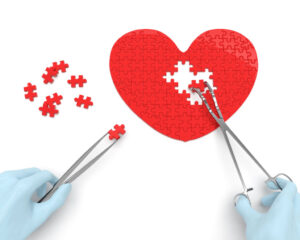How Do I Avoid Getting Divorced Again?

Divorces happen for emotional reasons. The hard part is, most people don’t really know their own personal emotional reasons for divorce. Of course, if you ask someone why they’ve divorced, they will probably describe a series of hurtful experiences and say that the unresolvable nature of what was hurtful lead to the breakup. Makes sense, right?
Problem is, what is usually not known are the psychological reasons why a person’s marriage failed. It’s easy to blame your ex-partner. It’s harder to acknowledge how what you’ve learned about love relationships in your life deteriorated the intimacy in your marriage. Simply put, most people are just not aware of their “Psychological Love Lives.” The result is often tragic. If you don’t know the psychological reasons why you’ve divorced, you could make the same love life mistakes over and over again until you get resigned to the idea that a love relationship is just too damn hard to sustain.
What can be done about this? First let’s restate the problem: if you don’t know what you’ve learned about love relationships in your life (usually from the very beginning of life) the “blueprint” created in your mind remains in the backroom, so to speak, shaping your love life experiences, good or bad. To further complicate the issue, when something is “unconscious” (or unknown) what that means is, it’s operating in your life without your knowledge or permission. Typically, we learn from the relationship experiences we have in life involving the emotion of love right from the very beginning of life. If the experiences were healthy then what you’ve learned is healthy and chances are you’ll have a pretty good chance of having a healthy love relationship.
If your relationship experiences were unhealthy, chances are you’ll replicate unhealthy relationship experiences in your own love life. Getting back to divorce, we can safely assume that divorce involves the effects of unhealthy learning about love relationships whether you consciously know it or not. My recommendation: find out what you’ve learned about love relationships in your life and how it replicates unhealthy experiences in your current love life. How can I find out what I’ve learned?
With a little focusing and concentration, start by figuring out what is repeating in your love life. If you’ve learned something and you don’t know you’ve learned it, it’s going to repeatedly operate in your life involuntarily, not by choice. Divorces happen because something unhealthy is replicating in a person’s love life, especially if similar difficulties have happened more than once. Repetition gives us a clue that something you’ve learned, that you don’t know you’ve learned, is dominating your love life.
To break the cycle of replicating unhealthy relationship experiences from your past, you have to find out what is replicating. Sit back and think about your love life. Is there a common theme in your love life disappointments? Example: do breakups always involve cheating? dishonesty? abuse? neglect? or some other unhealthy relationship experience? Once you’ve identified the culprit, you can challenge its dominance with the understanding that you want and need a healthier love life. You might even be replicating someone else’s love life difficulties learned unconsciously at a very vulnerable time in your life (i.e. watching your parents’ unhealthy marriage when you were a kid).
Once you’ve identified what you’ve learned and you are not letting it control your love life like is used to, you get to choose a better healthier way to be in love. I suggest you create the healthy opposite of what you’ve learned. It is certain to feel unfamiliar, but that’s because it’s an opportunity to steer your love life in a healthier new and better direction. Example: if you were exposed to dishonesty or mistreatment of some kind in the love relationships you’ve witnessed in your life, dedicate yourself to an honest respectful love life now as an adult. It’s the only chance you have to correct what was taught to you earlier in life.
The understanding you’ll obtain for why you divorced will dramatically improve your chances of forming and sustaining a healthier marriage next time around.
Comments are invited. Tell me about your love life.
Dr. Thomas Jordan, clinical psychologist, author of Learn to Love: Guide to Healing Your Disappointing Love Life. Need help fixing your disappointing love life? Confidential Love Life Consultations available by phone, inquire at drtomjordan@lovelifelearningcenter.com.
